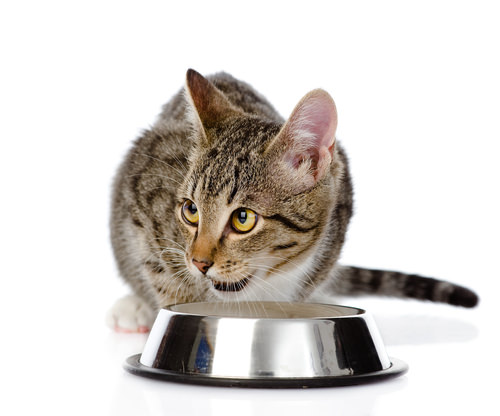We all are starting to recognize the value of good nutrition for ourselves and our pets. There are as many diet suggestions as there are ingredients. Everyone seems to have their own magic formula. It is important when you are making choices for your cat that you know what the terms actually mean.
Organic?
Organic is defined as “made according to USDA organic standards with no pesticides, antibiotics or hormones”. Organic only means no pesticides, antibiotics or hormones (which in itself seems a good initiative), but it does not reflect anything specific about the quality of the ingredients. Perhaps cat lovers should not be too quick to assume that an organic cat food also contains high-quality ingredients. Some do, but it is not a requirement.
So what about ingredients?
One might think that it was safe to assume that the labels on your pets’ foods are representative of what they contain. The ingredients must (by law) be listed in order by their weight, starting with the one with the highest weight listed first. So if the main ingredient is chicken weighed fresh compared with other nutritionally valuable ingredients weighed dry, then the chicken would weigh more because of the moisture content but actually contain fewer nutrients. Remember that just because it is first, does not mean that specific ingredient is the most important nutritionally.
Label buzzwords?
There are label claims like “hypoallergenic” and “super-premium”, but these tag words are not legally defined. Anyone can claim their diet is highly digestible with high quality ingredients. There is no way to prove or dispute these claims. You just have to assume that they have done some testing or have facts to suggest their label claims. But no one is holding them accountable.
Raw?
Some proponents say that cats should eat a raw diet because it is “natural”. They claim that there is improved immunity in animals fed an uncooked diet. According to an article in JAVMA in 2013, a study of cats fed a raw diet showed that these raw-fed cats were also fecal shedders of Salmonella spp. bacteria. These cats were contaminating their environment the whole time they were eating the raw diet, even though they did not seem clinically ill. Our house cats lead a life that is far removed from their natural state and we should not put the cats or the humans at risk of Salmonella infection. If a person is sick from Salmonella, he will not be able to care for his cat.
You still get what you pay for (like in everything) but take the time to ask a professional that you trust so that you are aware of the specifics. Truly high quality diets will never be cheap, but a high price tag alone does insure quality. Don’t be dazzled by fancy web sites and convincing advertisements. Pet food is big business. Don’t forget to ask your veterinarian. He or she knows you and your pet personally and will be able to help you sort through it all to find the best choice.
For more information about this and other animal topics, look me up on Facebook!

